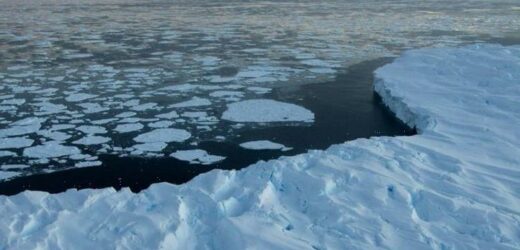Climate change: Patrick Christys on people who 'care' about issue
We use your sign-up to provide content in ways you’ve consented to and to improve our understanding of you. This may include adverts from us and 3rd parties based on our understanding. You can unsubscribe at any time. More info
A major UN scientific report, released last weekend, stressed that human activity is changing the climate in unprecedented and irreversible ways. UN chief António Guterres called a “code red for humanity”, after the report claimed the past five years had been the hottest on record since 1850 – and the recent rate of sea level has nearly tripled compared with 1901-1971. The new report also stressed that global warming to date has made irreversible changes to many of our planetary support systems, as the oceans will continue to warm and become more acidic and glaciers will continue to melt for decades or centuries.
Scientists threatened that future impact could be extreme, with the Arctic likely to be practically ice-free in September at least once before 2050, and extreme sea level events that usually occur once a century projected to take place at least annually at more than half of tidal gauge locations by 2100.
Almost every nation on Earth signed up to the goals of the Paris climate agreement in 2015, a pact which aims to keep the rise in global temperatures well below 2C this century and to pursue efforts to keep it under 1.5C.
This new report says that under all the emissions scenarios considered by the scientists, both targets will be broken this century unless huge cuts in carbon take place.
The authors even believe that 1.5C will be reached by 2040 in all scenarios, and this temperature could be reached even earlier if emissions aren’t slashed in the next few years.


Yet, scientists hope that deep cuts in greenhouse gas emissions could stabilise rising temperatures and disaster can be avoided.
The report, which is the first major review of the science of climate change since 2013, was released less than three months before a climate summit in Glasgow known as COP26.
UN Secretary General António Guterres said: “If we combine forces now, we can avert climate catastrophe.
“But, as today’s report makes clear, there is no time for delay and no room for excuses.
JUST IN: Algeria Wildfires: 25 soldiers killed trying to save residents

“I count on government leaders and all stakeholders to ensure COP26 is a success.”
Yet the environmental section of the Guido Fawkes website, titled Gaia Fawkes, claims the UN has been predicting environmental disaster for 50 years, with collapse often scheduled to happen in a decade’s time.
Indeed, in 1972 the first UN Environment Programme director Maurice Strong stated that the world “had just 10 years to avoid catastrophe”.
A decade later Mr Strong’s successor Mostafa Tolba warned that the world had only 18 years before “an environmental catastrophe as irreversible as any nuclear holocaust.”
DON’T MISS:
The huge threat of climate change: Iceland’s puffins pay high price
Electric car growth to help lead UK to net-zero emissions
Egypt archaeologists in furious debate over Tutankhamun’s mask
In 1989 Mr Tolba again reiterated the world must fix climate change by 1999 or “climate change goes beyond human control.”
Only a year later, in 1990, the UN official stressed the planet had just five years to solve the climate crisis, “otherwise we would lose the climate struggle”.
Ultimately the website highlights that threats of rising sea levels, melting glaciers have previously been premature and references a Sixties UN Food Programme, which predicted that the planet could not feed a growing population and that much of humanity would face starvation.
The earth’s population has more than doubled since the Sixties with fewer people in absolute poverty.
Source: Read Full Article


